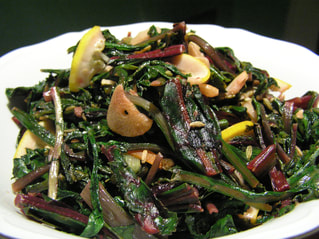 As we head into colder, dreary weather (bye Summer!), this is a good time to think about our vitamin D levels! First of all, what is Vitamin D? Vitamin D is actually a hormone – meaning it is synthesized by our bodies. This occurs when ultraviolet rays from the sun interact with cholesterol molecules on our skin, which then diffuse into the bloodstream. This is why you’ve likely heard that sunlight is good for our D levels, and also why we can become deficient in winter months. Does this mean we should be tanning all day in the sun? Not necessarily (and SPF can block synthesis) – even 20 minutes spent outside twice weekly can improve levels, but we can also increase our levels through food sources: Diet:
Supplementation:
Vitamin D2 & D3 are converted into the active metabolite (1,25-dihydroxyvitamin D) in the body by the liver and kidney. Vitamin D is primarily metabolized in the liver, stored in the liver & fat tissue, & absorbed by the small intestine. What are the benefits of Vitamin D? • Bone Health - helps regulate levels of Calcium & Phosphorus in the body via greater absorption in the small intestine & reabsorption by the kidneys, which leads to increased deposits in bone • Immune function - helps protect us from pathogens & has implications for autoimmune disease (in which levels are often low) • Preventative effects against: Diabetes, cardiovascular disease & cancer • Mood: supplementation in patients with depression has been shown to significantly improve mood • Anti-inflammatory: shown to significantly down-regulate inflammatory signals. If you’ve been experiencing any of the following symptoms (and haven’t been getting much sun!), you may want to have your levels checked:
Risk factors for deficiency include:
Be sure to have your levels checked & consult with an ND before supplementing!
1 Comment
 I’m sure most of us are familiar with the term probiotics - the “good” bacteria which help to balance out the “bad” bacteria in our gut. But what are prebiotics, and why are they important? Prebiotics are simply food for our “good” bacteria. They are indigestible carbohydrates which can be obtained from either food sources or dietary supplements. When we ingest them, they stimulate the growth of these “good” bacteria and help them to function optimally. Having a well-balanced, healthy gut flora is critical for a multitude of reasons, including proper immune function, bowel regulation, optimal brain functioning, and cholesterol balance. It has also be shown to be beneficial for the prevention and/or treatment of the following conditions: atopic allergy, gastric and intestinal infections, irritable bowel disease (IBD), irritable bowel syndrome (IBS), cardiovascular disease, osteoporosis, urogenital tract infections, and obesity. As we expand our knowledge of prebiotics and how they positively affect the gut microbiome, it is evident that they can play a major role in optimizing health and preventing disease. So what are the best sources of prebiotics? Although there are many prebiotic supplements on the market, supplementation may not be necessary for individuals who consume a diet high in vegetables and fruit. Obtaining nutrients from whole foods rather than supplements is ideal, and since there are a variety of wonderful foods that are rich in prebiotics, you may not need to rely on a prebiotic supplement. Examples of prebiotic-rich foods include:
So, next time you’re heading to the grocery store or local farmer’s market, keep this list of foods in mind. Incorporating a few servings in your diet each day will ensure an adequate intake of prebiotics, and will help support not only your gut micriobiome, but also your overall health. |
AuthorThe official blog of our fabulous Tuesday night clinic group at the Robert Schad Naturopathic Clinic. Come pay us a visit! Archives
August 2021
Categories |
 RSS Feed
RSS Feed
